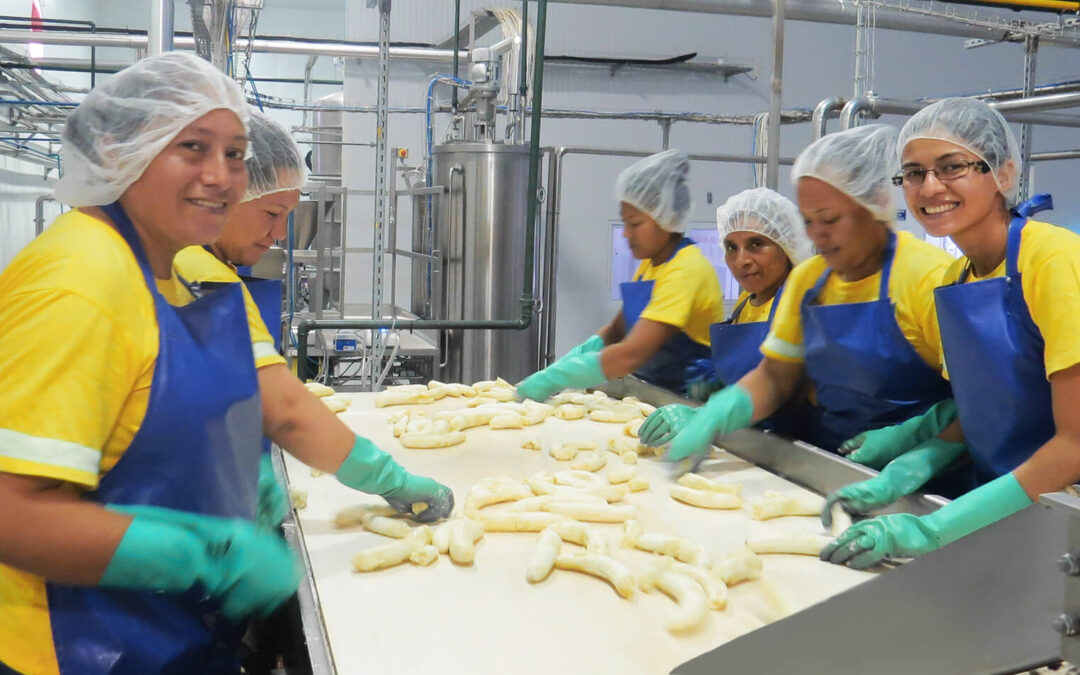This month marks International Labor Day, which has inspired me to write about a living wage.
Although there is no exact definition, there is a global consensus on what a living wage means: it is a wage that allows workers and their families to meet their basic needs. However, in many countries minimum wage does not cover these needs, so it is important to go beyond the requirement of the laws to guarantee a higher level of pay and better quality of life for workers and their families.
At Agroamerica, we have carried out living wage studies with external companies to determine the living wage of our workers. We also made an alliance with the Social Progress Institute of Guatemala, who helped us identify the basic needs of our workers and their families. Participation in the World Banana Forum is another instance that has guided us in the implementation of the fair distribution of value in the supply chain and in the construction of a living wage in Ecuador, Peru, Panama, and the countries where we operate. Currently, the workers of Agroamerica receive salaries that considerably exceed the legal minimum wage and are above the GDP per capita.
According to the United Nations, guaranteeing a living wage is an essential aspect of decent work and promoting decent work is one of the 17 Global Goals of the new Agenda for Sustainable Development.
For some time, it has been claimed that a happy worker is a more productive worker. But how does a person manage to be happy at work?
I would say that decent work is an important motivation in anyone’s life and contributes to their happiness.
According to the International Labor Organization (ILO), decent work implies the following aspects:
1. Generate a fair income. Workers seek a position with a salary that meets their needs, but, even more, allows them to save and cover the basic expenses of their family.
2. Offer security. Worker must have social security, occupational safety, and a feeling of belonging in the company. They must have freedom of association, such as by being a part of unions or workers’ committees.
3. Ensure social protection for families. Social benefits, additional to those required by law, such as having a school for children of workers, a health center with quality medical care, workshops and trainings, and social and community projects, are incentives that contribute to the well-being of workers and their families.
4. Recognition, which allows people to freely express their opinions. Workers like their opinions to be considered. They like to have responsibilities based on trust. May their achievements be rewarded.
5. Good work environment, created through the construction of healthy and respectful relationships and non-discrimination. It guarantees equal opportunities without distinction of sex, race, age, religion, etc.
In other words, there must be conditions of equity, freedom, security, and human dignity for the worker.
At Agroamerica we strive to maintain fair treatment. We have an Ethics Hotline for complaints and suggestions. We also have labor policies, a Code of Ethics, and an Ethics Committee.
I am pleased to share in this link the actions and programs that we have carried out to define the living wage in Agroamerica, which contribute to the well-being of our workers and their families.
